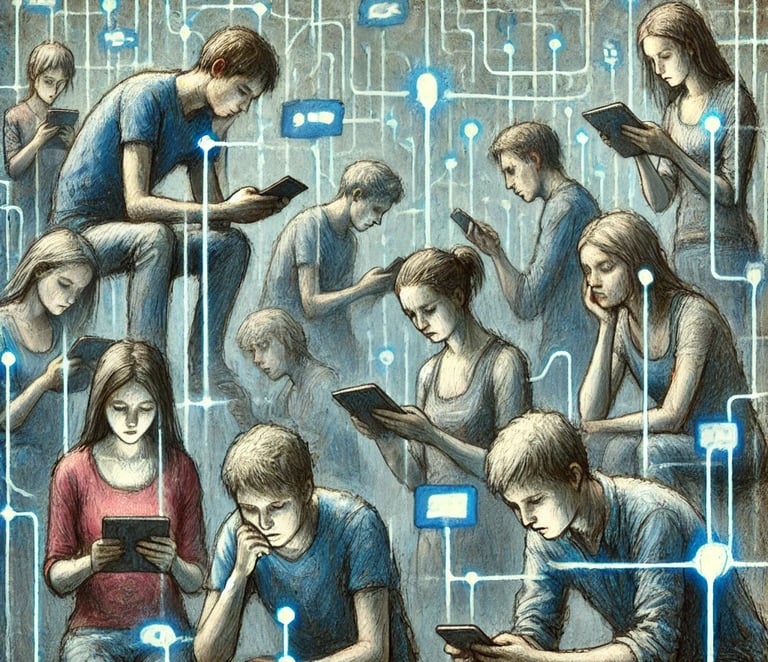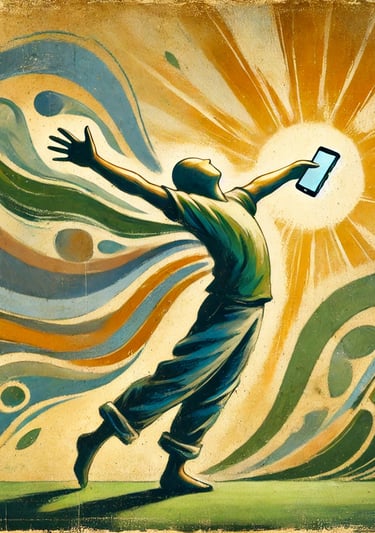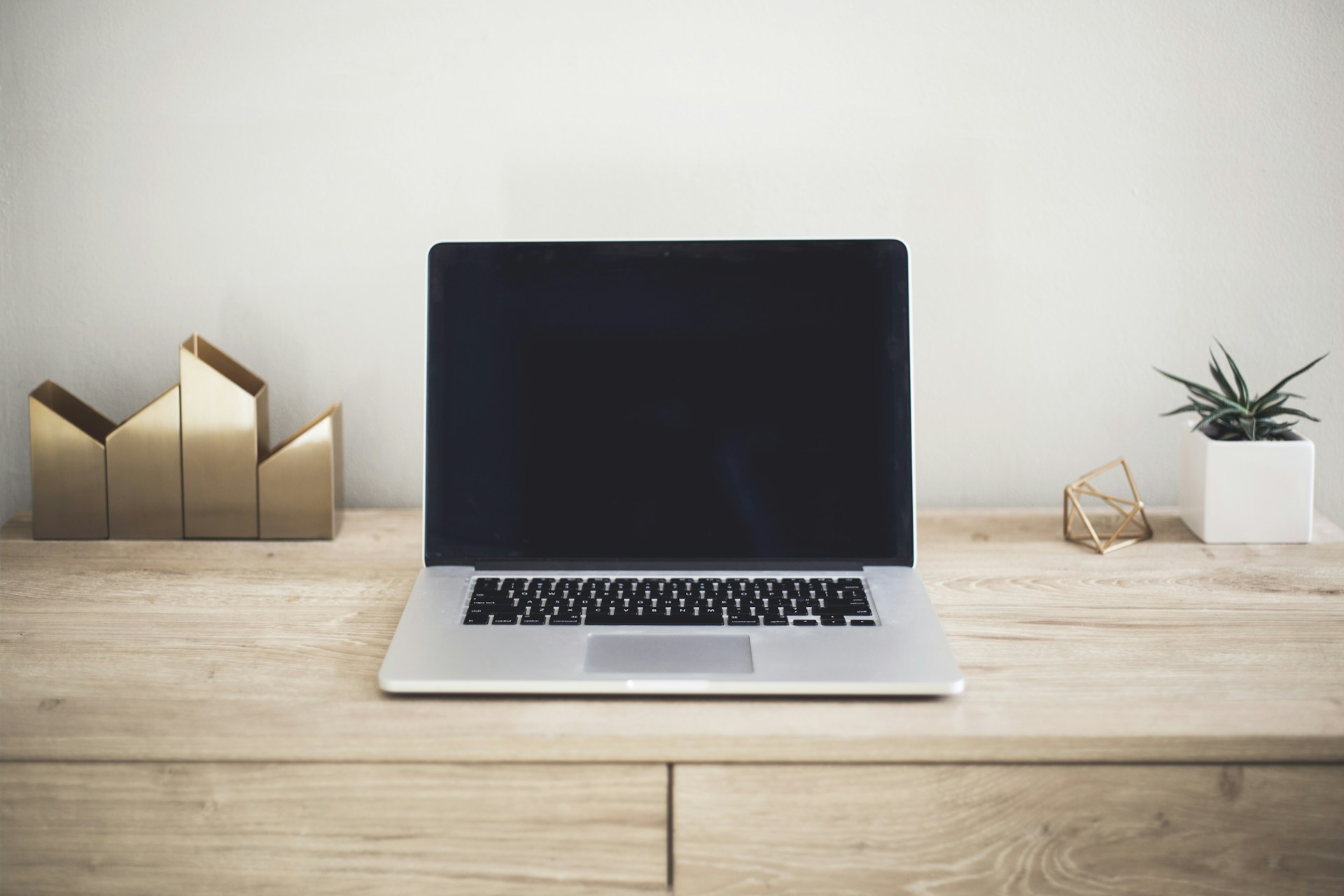The Dark Side of Social Media: Its Impact on Mental Health
Social media keeps us connected and entertained, but it can also stir up anxiety, self-doubt, and comparison. As a therapist familiar with current tech, here are my insights and strategies to help you navigate its emotional impact more mindfully.
Nick Mecca, LPC
8/6/20247 min read
In today’s tech-infused world, it has become nigh impossible to avoid social media. Scrolling through Facebook, Instagram, Twitter, and now with the advent of Shorts/Reels/TikToks, these platforms have become a staple in many of our daily lives. But while they help us stay connected, informed, and entertained, they can also bring with them a hefty dose of problematic and uncomfortable feelings. As a tech-inclined therapist who’s helped many clients (and myself) navigate this tricky terrain, I’d like to share some insights and practical tips to help you manage the emotions you may be feeling due to social media.
How Common Is It?
You’re not alone if social media is affecting your mental health. Recent studies show a significant rise in anxiety levels among adults who are active on social media. The constant bombardment of information and images, often idealized or sensationalized, can make us feel inadequate or stressed. Additionally, people surveyed for these studies often report higher levels of depression, loneliness, or FOMO (Fear Of Missing Out) the more time that they spend engaged on social media platforms [1].
Unveiling the Emotional Consequences of Social Media Overuse
Understanding the Emotional Impact
Social media overuse can lead to a range of negative emotional experiences that in no way can be summed up in a concise manner. Sometimes, it manifests as a pervasive sense of unease or dissatisfaction, whether it’s from the relentless comparison to others, the feeling of missing out on events, or the emotional strain of constant online engagement. Other times, you might find yourself feeling isolated despite being connected, or experiencing a range of emotions from frustration and loneliness to sadness and irritability or even rage and hopelessness.
Unlike general emotional challenges that might affect various life areas, the emotional consequences of social media overuse are specifically tied to the interactions and content you encounter online. This targeted impact can significantly affect your overall mental well-being, highlighting the need to address and manage your social media habits consciously.
First and foremost - what each person considers “overuse” will be dependent upon them. For some people, a few hours a day may not affect them the way that a few minutes a day affects someone else. “Overuse” as it is used here refers to a level of usage that impacts your personal mental health. The beauty of humanity is that we are all so very different, and one-size will never fit all.



There is a fine line between using social media and letting social media use you.
-Unknown
Here is where it gets interesting and where we find something that I believe does not get nearly enough attention: social media platforms use complex, machine-learning algorithms to keep you online. These algorithms track your behavior and push content designed to engage you—often content that’s emotionally charged or controversial. The more you engage, the more you see similar content, which can create a loop of heightened emotional responses. In layman’s terms, this can look like an app measuring how long you pause on viewing certain content before scrolling on (down to the millisecond) and then determining commonalities among what you have paid attention to, ultimately factoring that into what content it will continue to deliver to you. Remember that the ultimate goal of these companies is to feed you as many ads or sponsored content as possible, so the way they have learned to do so is to continually provide you with the content you find most interesting because you will swipe through far more ads if you are being fed what interests you in between them. With the advent of AI, these algorithms are only becoming better, faster. [2]
Simply recognizing these patterns is an important primary step toward change.
Cognitive Distortions
As a result of being placed in an echo chamber of our own accidental, but algorithmically driven, making, we find that social media ultimately can cause distortions in our thinking. You may feel like the world is crashing and burning and everyone is against you, that your specific way of life and things you enjoy are at threat of being taken away from you, or any number of other possibilities. You might find yourself catastrophizing - thinking that a few negative comments mean your whole world is falling apart, or overgeneralizing, assuming that everyone is doing better than you because of what they post online. These cognitive distortions undeniably impact our mental health, the energy we have to go after our goals each day, and even amplify negative preconceptions about the way we view ourselves and those we are socially connected with.
How Platforms Exploit Your Feelings to Keep You Engaged
Social media platforms are designed to make you feel an emotion—at least temporarily. When you are shown content that reinforces your beliefs, you receive likes or comments, or something makes you happy - your brain releases dopamine, the “feel-good” neurotransmitter. This makes you want to keep checking for more of the same, creating a cycle of constant engagement that can impact your mental well-being.
On the other hand, when we see content that makes us scared, angry, or stressed out adrenaline and noradrenaline/norepinephrine responses occur which leads us to feel like we need to see more, understand more, engage more so that we can either “attack” or “defend” against the content that curated these feelings. Disconnecting from either of these loops often will lead us to initially feel anxious, alone, or sad because we are no longer experiencing content that triggers these rapid and persistent emotional responses. Similarly, seeing friends’ curated, picture-perfect lives can fuel feelings of inadequacy and comparison. And then there’s FOMO (Fear of Missing Out), which can make you feel like you’re missing out on fun or important events.
The algorithms that drive all social media sites make these feedback loops far too easy to re-engage with by bringing the content directly to our respective feeds in an effort to keep us scrolling, swiping, or watching. Researchers of social media, developers, and whistleblowers have reported that there are highly paid teams of professionals utilizing cutting edge research and focus groups to determine ways to keep a user engaged. This can be as subtle as the choice of color and design for the app’s icon (think of how inviting that blue Facebook icon is, how cool and exciting and hip the icon for Instagram seems, or even how new, neon, and edgy the icon is for TikTok).
How Algorithms and Psychological Mechanisms Fuel Emotional Distress on Social Media



Coping Strategies to Mitigate Social Media’s Impact on Us
Empower Yourself Through Knowledge
I believe that the first step in becoming more mindful in the use of social media is to really understand how it is built - to look behind the curtain, Wizard of Oz-style, which is why I included a section in this article on just that, but know that it only scratches the surface. You may find that the more research you do and more understanding you gain about how social media operates through the “hacking” of our emotions in order to keep us engaged at the direction of maximizing ad revenue, the easier it is to be objective about the content you see. What Richard Serra said over 50 years ago when referring to commercials in television applies even more so now: “If something is free, you're the product.”
Knowledge is power - and a great first step is becoming aware about how much you are using social media first, then setting goals to reduce it as you see fit.
Mindful Social Media Use/Curating Your Feed
One strategy I recommend to my clients is being intentional about how and when you engage with social media. Set specific times for checking your accounts, and be selective about the content you consume. Another practical step is to actively curate your social media feed. Follow accounts that make you feel good and unfollow or mute those that bring negativity. Social media platforms often have settings to help you filter out distressing content. This is something that can be particularly helpful around high-stress times, like when there is an upcoming election.
Digital Detox/Setting Limits
Sometimes the best way to manage social media impact is to take a break. A digital detox doesn’t have to be extreme; even a short-term break from social media can give you space to recharge. A recent study showed that participants engaging in reducing social media usage to 30 minutes a day over a period of 2 weeks saw “significant improvements in their psychological well-being. Anxiety, depression, loneliness, fear of missing out, and negative affect decreased while positive affect increased.” [3]
Therapeutic Techniques
If you find that these strategies aren’t enough, cognitive-behavioral techniques can be very effective, as can discussing the barriers that you are running up against with a professional. These methods help you challenge and change negative thought patterns related to social media. Professional therapy can offer personalized strategies and support to help you manage social media usage and anxiety more effectively.
Social media doesn’t have to control your mental well-being, and it certainly does not have it in mind when it feeds you content. By taking steps to manage your usage and focusing on healthier online habits, you can reduce the impact social media has on your mental health.



Remember, if you’re finding it challenging to navigate these feelings on your own, seeking professional help can be a valuable step. Feel free to reach out if you need more personalized strategies or if you’re struggling to manage social media anxiety on your own. Taking care of your mental health is a priority, and you don’t have to do it alone.
Nick Mecca, LPC
[1] Faulhaber, M. E., Lee, J. E., & Gentile, D. A. (2023). The Effect of Self-Monitoring Limited Social Media Use on Psychological Well-Being. Technology, Mind, and Behavior, 4(2: Summer 2023). https://doi.org/10.1037/tmb0000111
Contacts
Phone: (214) 500-9283
Fax: (512) 727-7255
nick@horizonunbound.com
Address
100% Virtual Telehealth!
